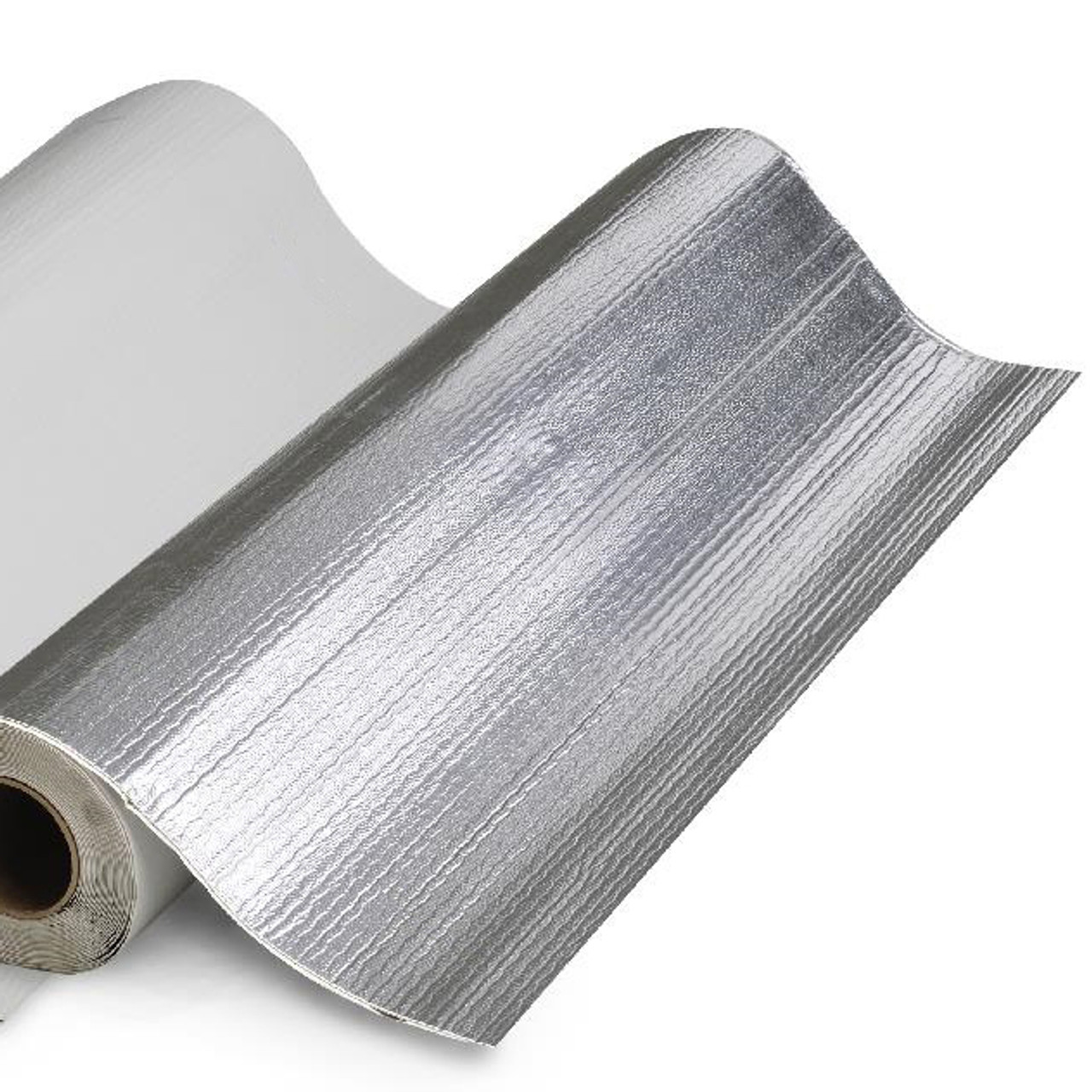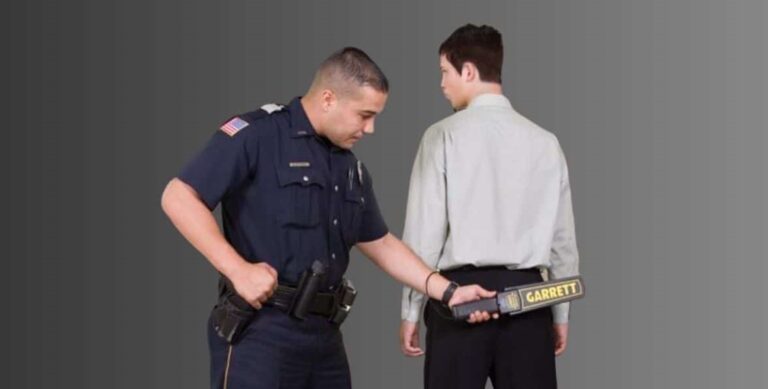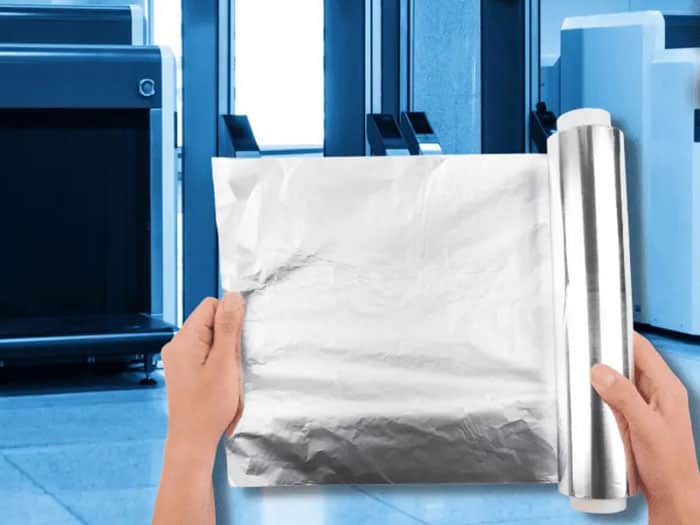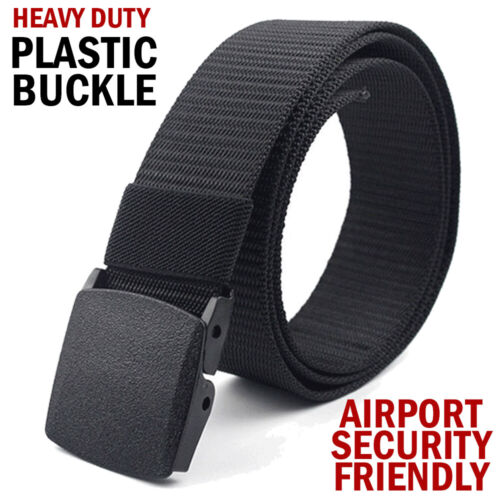Does Aluminum Foil Set off Metal Detectors
Yes, aluminum foil can set off metal detectors. This is because aluminum foil is made of metal. Metal detectors are designed to detect metal.
When metal comes into contact with the sensor on a metal detector, it creates a signal that alerts the user to the presence of metal. Aluminum foil is thin enough that it does not always create a strong enough signal to be detected, but it can if it is in close proximity to the sensor or if there is a lot of it.
If you’re planning on smuggling aluminum foil through a metal detector, think again. While aluminum foil won’t set off the alarm on its own, if it’s wrapped around other metal objects, it can definitely make the machine beep. So unless you want to end up getting searched by security, it’s best to leave the foil at home.
Can Aluminium Foil Be Detected by a Metal Detector?
Yes, aluminum foil can be detected by a metal detector. Metal detectors work by detecting the presence of metal in an object. When metal is present in an object, it creates a magnetic field that the metal detector can detect.
Aluminum foil is made up of metal, so it will create a magnetic field when it is placed in front of a metal detector.
Does Aluminium Stop Metal Detectors?
There is some debate over whether or not aluminum foil will stop a metal detector. Some people say that it does, while others claim it doesn’t make a difference. There is no clear consensus, but the jury is still out on this one.
If you’re trying to avoid setting off a metal detector, then give the aluminum foil a try. It can’t hurt, and it works. Even if it doesn’t completely block the signal from the detector, it could reduce it enough so that you don’t set off the alarm.
What Material Can Block Metal Detectors?
There are a variety of materials that can block metal detectors, including but not limited to aluminum foil, copper, lead, and steel. Each of these materials has a different effect on the performance of the metal detector. For example, aluminum foil will cause the signal from the metal detector to be weaker, while lead will completely block the signal.
Additionally, the thickness of the material also affects how well it blocks the signal from the metal detector.
Does Foil Show Up on Airport Scanners?
If you’re wondering whether foil will show up on an airport scanner, the answer is yes. Foil is a metal, and metals are highly conductive. This means that X-ray machines can easily detect them.
So, if you’re packing foil in your carry-on bag, be prepared for it to show up on the scan. Of course, this doesn’t mean that you’ll necessarily be flagged for extra screening. Airport security officials are trained to identify potential threats, and most items that set off alarms are harmless.
So, don’t worry too much about the foil in your bag – chances are it’s nothing to worry about.
Does Aluminum Foil Set off Airport Metal Detectors
When flying, one of the last things you want to worry about is whether or not the aluminum foil in your carry-on will set off the metal detector at airport security. However, there’s no need to stress – aluminum foil won’t trigger the alarm.
Here’s what happens: Metal detectors work by detecting electromagnetic fields.
Aluminum foil is made up of tiny metal plates that are too small to create an electromagnetic field detectable by security devices. So, even though each plate in the foil may be detectable, when they’re all grouped, they don’t create a strong enough signal to alert security. Of course, if you’re packing your carry-on full of nothing but aluminum foil, it might raise some eyebrows!
In general, it’s best to use foil sparingly when flying and keep any large pieces well-wrapped so they don’t cause any problems during the X-ray screening process.
How to Block Metal Detectors
When you go through a metal detector at the airport, have you ever wondered how it works? Metal detectors are actually quite simple devices. They work by sending out an electromagnetic field that interacts with any metal in the area.
When the field encounters metal, it produces a signal that is amplified and then detected by the machine. There are two main types of metal detectors: handheld and walk-through. Handheld detectors are smaller and more portable, making them ideal for use in schools or other public places where security screenings are common.
Walk-through detectors are larger and must be mounted on a stand, but they offer a more thorough scan of individuals as they pass through. So, how do you block a metal detector? The most obvious way is to remove all the metal from your body before going through the scanner.
This includes taking off jewelry, belts, watches, and anything else made of metal. If you don’t want to remove all your belongings, another option is to use a Faraday bag. These bags are made of material that blocks electromagnetic fields, so any metals inside will be undetectable to the scanner.
You can find Faraday bags online or at some electronics stores. Another way to block a metal detector is with electronic interference. This can be done by using devices that emit electromagnetic fields, like cell phones or radios.
Simply turning on one of these devices near the scanner will cause enough interference to make it difficult for the machine to read signals from metals nearby. Of course, this method may not work if there’s already too much electronic noise in the area (like at an airport), but it’s worth trying if you need to get past a detector in a pinch. Ultimately, whether or not you can successfully block a metal detector depends on what type of device you’re using and what kind of materials you have access to.
With some creativity and ingenuity, however, it is possible to beat even the most advanced scanners!
What Can Block Metal Detectors
If you’ve ever wondered what can block metal detectors, the answer may surprise you. Everything from the type of metal detector to the environment can affect its performance. In this blog post, we’ll explore some of the common factors that can impact a metal detector’s ability to detect metals.
One of the most important factors is the type of metal detector being used. Some detectors are more sensitive than others and will be able to pick up smaller pieces of metal. Others, like those used in airports, are designed to ignore small pieces of metal in order to reduce false positives.
Another factor that can impact a metal detector’s performance is the environment it’s being used in. Metal detectors work best when there’s little or no interference from other sources of electromagnetic energy, like power lines or radio towers. The presence of salt water can also interfere with a metal detector’s ability to detect metals.
Finally, even the slightest bit of movement can affect a metal detector’s performance. That’s why it’s important to keep still when using one. Any movement, even just slightly waving your hand over the sensor, can cause false readings.
So there you have it: some things that can block or interfere with a metal detector’s ability to do its job.
How Much Metal Will Set off a Metal Detector
How Much Metal Will Set off a Metal Detector? Just about any metal object will set off a metal detector. The larger the metal object, the more likely it is to trigger the detector.
Even small pieces of metal, like coins or nails, can set off a metal detector if they’re close enough to the sensor.
Does Lead Set off Metal Detectors
It’s a common question – does lead set off metal detectors? The answer is both yes and no. Here’s a closer look at how lead affects metal detectors and what you need to know to get accurate readings.
Lead is a type of metal, so it will usually trigger a metal detector. However, the amount of lead that would be required to create a reading on a metal detector is much higher than the amount typically found in household items. This means that if you’re using a metal detector for general purposes, you’re unlikely to get false positives from lead objects.
There are some circumstances where lead can cause problems with metal detectors. For example, if you’re using a very sensitive metal detector in an area with high levels of natural radiation, such as near a beach or in the mountains, the lead in your body could set off the detector. In these cases, it’s best to use another form of detection, such as X-ray machines, which are not affected by lead.
Will a Swisher Pack Set off a Metal Detector
If you’re planning on taking a Swisher pack with you through airport security, think again. These packs are made of metal and will almost certainly set off the metal detector. You’ll likely be subjected to a pat-down search, which can be time-consuming and inconvenient.
It’s best to leave your Swisher at home when traveling by air.
Does Mylar Set off Metal Detectors
Mylar is a type of plastic that is often used to make balloons and other types of party decorations. It is also sometimes used to line food storage containers. Because it is made of metal, it can set off metal detectors.
If you are going through a security checkpoint, be sure to let the security officer know if you have any Mylar balloons or other items with you.
How to Hide Gold from Metal Detector at Home
Gold is one of the most popular precious metals in the world, and it’s also one of the most difficult to hide from a metal detector. If you’re looking to keep your gold stash hidden at home, there are a few things you can do to make sure it stays undetected. First, consider where you’re hiding your gold.
If it’s in a spot that’s likely to be scanned by a metal detector (like near the front door), try moving it to a less obvious location. Underneath furniture or inside walls are always good options. Once you’ve chosen a new hiding spot, take some time to shield your gold from detection.
Wrapping it in aluminum foil or placing it in a Faraday cage are both effective methods for keeping your gold hidden from prying eyes – and metal detectors!
Conclusion
If you’ve ever been to an airport, going through security can be a hassle. One of the things you have to do is take everything out of your pockets and put it in a bin. This includes your keys, wallet, and phone.
But what about aluminum foil? Many people wonder if aluminum foil will set off metal detectors. The answer is no; aluminum foil will not set off metal detectors.
However, some items may look like aluminum foil that will set off the detectors. These items include tin foil, gum wrappers, and even some candy wrappers. So, if you’re carrying any of these items in your pocket, be sure to take them out before going through security.







